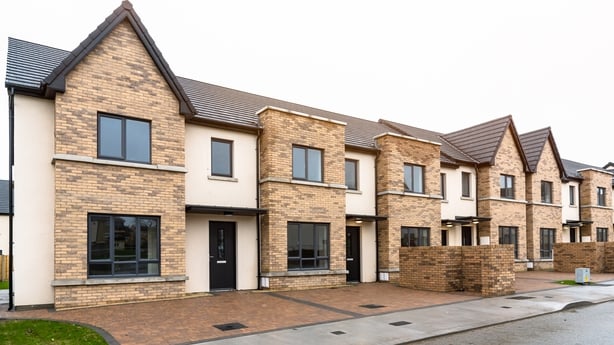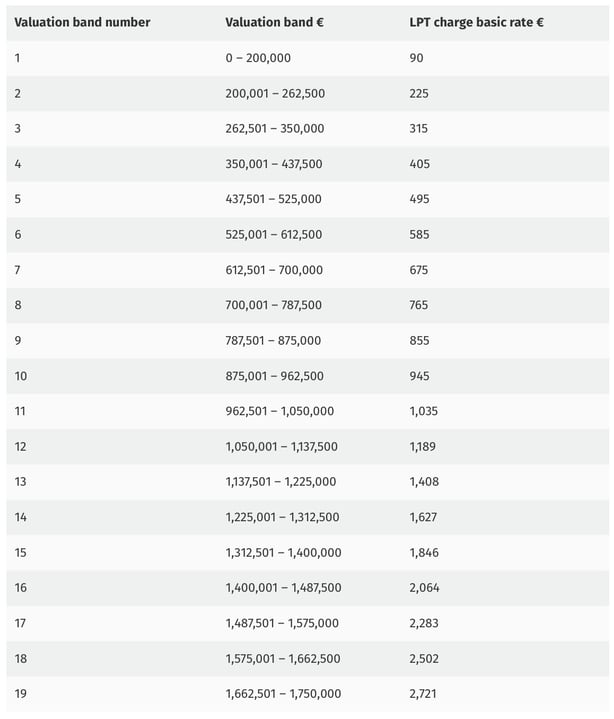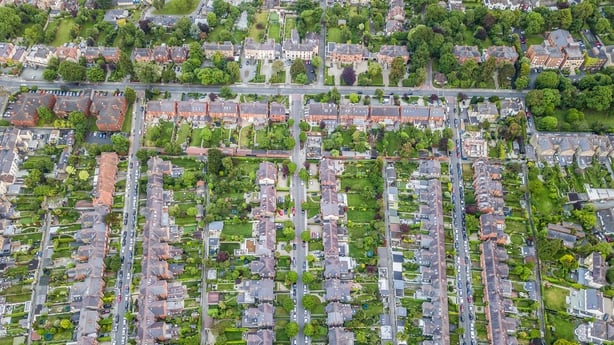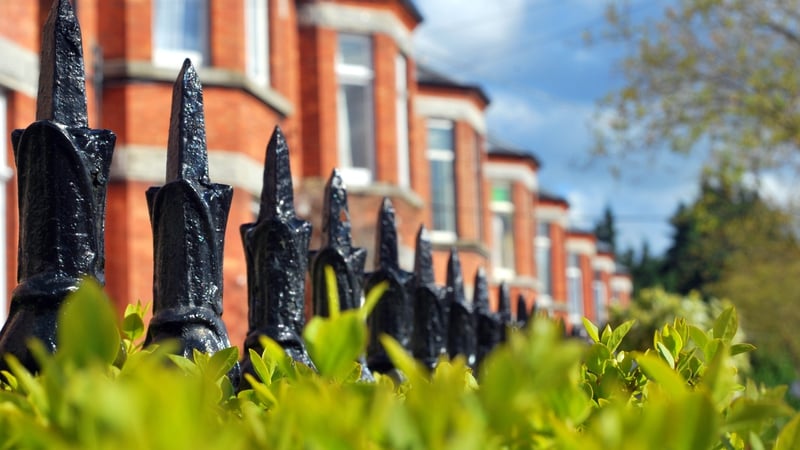800,000 property owners will be receiving a reminder from Revenue to set up a payment option for their Local Property Tax (LPT) for 2024.
If you're paying your LPT for the first time, or if you paid the tax for 2023 and didn't choose a recurring method, you will have to pick a payment method by 1 December.
You may also have to update your payment method if you have recently changed your bank account.
Revenue said the easiest way to do this is online at Revenue.ie.
Who has to pay LPT?
Anyone who owns a residential property on 1 November 2023 is liable for LPT in 2024.
If you’ve only just become liable, you are required to submit a valuation of your property as part of your LPT return.
Who needs to make a LPT return?
Your LPT return is the form you use to declare the valuation band of your property to Revenue.
If you submitted a LPT return for 2023 for your property, you do not need to make another return for 2024.
For the years 2022 to 2025, the LPT is based on the value of your property on 1 November 2021.
You do not need to update your valuation until 2025, even if you have carried out works on your house.
For example, if you add an extension which increases the value of the property, no action is needed.
However, if you have a property that has become liable since November 2021 and you have not submitted a return for it, you will need to do so.
You need to work out the market value of your property and submit your LPT return by 1 December 2023.
You are also required to submit your LPT return if your property is eligible for a LPT exemption or if you are claiming a deferral of LPT payment.

How do I value my property?
You can value your property, as at 1 November 2021, by using Revenue's interactive valuation tool.
Revenue also advises using other information sources to help you determine the value of your property.
"It is important that you also consider the specifics of your own property," Revenue said.
"Your property may have certain unique features that you should consider when determining its value."
How much is LPT?
LPT is charged according to the valuation band that applies to a property.
Each band has a corresponding basic rate of LPT for the valuation period 2022 to 2025.
The table below shows the rate that applies to each of the 19 bands for properties valued up to €1.75 million.

Each Local Authority can increase or decrease the LPT rate by up to 15% from the basic rate each year.
This means that the LPT charge for your property’s valuation band may be different to the LPT charge basic rate. This is known as the 'Local Adjustment Factor'.
When do I have to pay by?
The date by which you need to pay your Local Property Tax charge depends on the payment option you choose.
You should confirm your payment method to Revenue by 1 December 2023.
Annual Debit Instruction (ADI)
The latest date you can pay in full is 21 March 2024. You can do this by setting up an Annual Debit Instruction (ADI) payment.
On the LPT Portal, you can select any date for the payment to be deducted up to 21 March. You will need your IBAN for the bank account that you want your LPT charge to be deducted from.
Your ADI will carry forward each year unless you change your payment option online or contact Revenue.
Cash
You can pay your LPT charge in full by cash at an approved Payment Service Provider (PSP) by 10 January 2024.
The approved PSPs are An Post, Omnivend and Payzone.
Debit or credit card
You can also pay in full by debit or credit card by 10 January.
Your payment will be processed on the date it is submitted.
It may take up to 72 hours for the payment to become visible on your Revenue online LPT record.
Phased payments
Phased payments will begin in January. These include regular cash payments through a PSP or debit or credit card payments.
It is important to note that the three approved PSPs will charge a transaction fee.
An Post - a TaxPay service fee of €1 per transaction
Omnivend - 4% of the transaction amount
Payzone - 75 cent per transaction for transaction amounts up to €50, €1 per transaction for transaction amounts from €50.01 to €100 and €2 per transaction for transaction amounts over €100.
You can also choose for your LPT payments to be deducted from your salary, wages, occupational pension and other sources.
The amount of each payment will depend on the number of salary, wage or pension payments you are due to receive during the year.
Your employer or pension provider should report your LPT payment to Revenue every time you are paid.
You can view your LPT payments, as reported by your employer, through the 'Manage your tax’ link in myAccount.
Monthly direct debit payments can also be set up and will start in January and continue on the 15th day of every month.
What happens if I don’t pay?

If you don’t pay your LPT, Revenue will use a number of collection and enforcement options to collect any tax due.
It will remind people of their obligations, and if a response is not received within the specified time, it will take action.
This action could include a mandatory deduction from your salary or occupational pension, among other measures.
Revenue can also charge you interest and penalties.
What if I own a home that is vacant?
The Vacant Homes Tax (VHT) is due on residential properties that are liable to LPT and are vacant.
Revenue defines 'vacant' as a property occupied for less than 30 days in the year ending 1 November 2023.
There are a range of exemptions from the VHT and Revenue advises vacant property owners to follow the guidelines on its website.
7 November was the return filing date for the VHT.
As of 20 November, figures from the Department of Finance show that over 50,000 properties had been reported through Revenue's VHT portal.
Around 5,000 of these properties are declared as vacant and 45,000 as occupied.
Out of this total, around 2,000 of these properties have claimed an exemption from the tax, which leaves around 3,000 properties with liability to VHT.
Revenue pointed out that VHT does not apply to derelict or uninhabitable properties, or residential properties which were sold or subject to a qualifying tenancy during the relevant chargeable period.
VHT is a self-assessed tax, and so it is up to property owners to work out whether they have a liability to the tax, regardless of whether they receive a letter from Revenue.
Vacant Homes Tax returns can be submitted online through Revenue's myAccount, Online Service (ROS) or the LPT Portal.
How much is VHT?

The tax liability was set at a rate equal to three times the property's base Local Property Tax (LPT) charge.
However, this was increased to five times the LPT charge in Budget 2024.
Revenue said the main aim of the tax is to increase the supply of homes available for rent or purchase, by encouraging the owners of vacant residential properties to bring them back into use.
Last week, the Minister for Finance said he will continue to monitor the implementation of this new tax.
"I know Revenue will provide us with useful information gathered as part of the returns process to help us in the public policy objective of discouraging vacancy," the Minister said.





